 Convey Meaning
Convey MeaningThis page is Convey Meaning page of four verbs with different particles.
 What are Two-Word Verbs?
What are Two-Word Verbs?
 A two-word verb is a kind of verb that consists of two parts.
A two-word verb is a kind of verb that consists of two parts.  This self-learning project chose four of the
most frequent verbs in the PHaVE List.
This self-learning project chose four of the
most frequent verbs in the PHaVE List.  The layout of these two-word verbs are organized by alphabetical order.
The layout of these two-word verbs are organized by alphabetical order.
 Note that STH means something; SB means somebody.
Note that STH means something; SB means somebody.

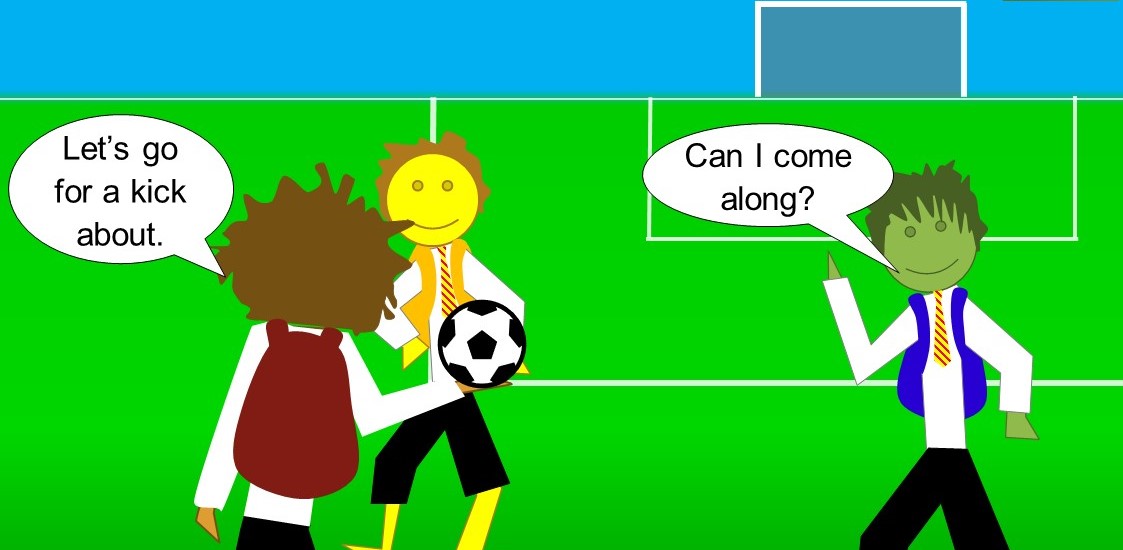



















| Two-Word Verbs | Illustration | Definition & Context & Frequency |
|---|---|---|
| come along |
|
1) Appear or arrive; come into existence (72.5%) Such an opportunity comes along only once in a lifetime. 2) Go somewhere with SB (20.5%) We’re going to play soccer tonight; you should come along with us! |
| come around |
|
1) Come in the area near STH/SB (45%) His dad came around to his room and kissed him goodnight. 2) (+ to) Convert to an opinion or decision (22%) I believe she will come around to our way of thinking eventually. 3) Happen again as a regular event, at its usual time (10%) The bus has just gone; you’ll have to wait until next bus comes around. |
| come down |
|
1) Move from a higher spatial location to a lower one; fall/land onto the ground (32.5%)
Come dow n from the roof or you will hurt yourself. 2) (+ to) Reduce itself to one particular thing that is the most important or essential matter (20.5%) In politics, everything comes down to the economy. |
| come in |
|
1) Enter a place or area (room, building) (65%) She opened the door and he came in. 2) Become involved in a situation (14%) We need experts to come in and give us advice. |
| come off |
|
1) Become detached or removed from a larger whole (34%) The button is coming off my coat. 2) Appear or seem to be a particular way (24.5%) He was tired and not prepared, and so came off poorly in the interview. 3) Be finished with STH; have completed STH (17.5%) The team just came off an incredibly successful season. |
| come on |
|
Said to encourage SB to try harder, or do or say STH (50%)
Come on, don’t be shy and tell us your story. |
| come out |
|
1) Leave a place (room, building, container) or appear from it (38%) He went into the bank and came out with some money. 2) Become known or revealed after being kept secret (13.5%) The news came out that he was leaving the team. 3) Become available or released to the public (film, record, book) (10%) Their new album is coming out next month. |
| come over |
|
Come to a place or area (spot, room, town, country), esp. towards SB or to join SB (95%)
My friends come over and help me to paint the new house. |
| come through |
|
1) Be clearly perceived, noticed or seen (feeling, emotion, quality) (20.5%) Her disappointment came through by the tone of her voice. 2) Reach success or a desired goal despite difficulty (20%) After applied several times from school, his student loan finally came through. |
| come up |
|
1) (+ with) Bring forth or produce (34%) She instantly came up with a solution to the problem. 2) (Be coming up) Be happening soon (esp. be broadcast soon) (27.5%) Coming up after the news, our cooking program will feature cheese. |



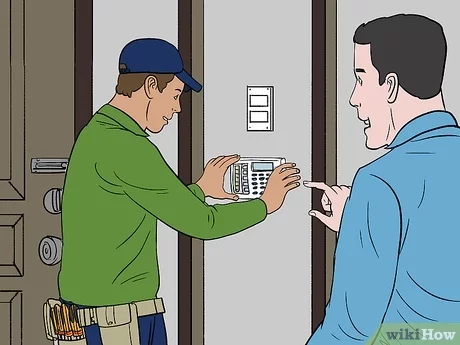







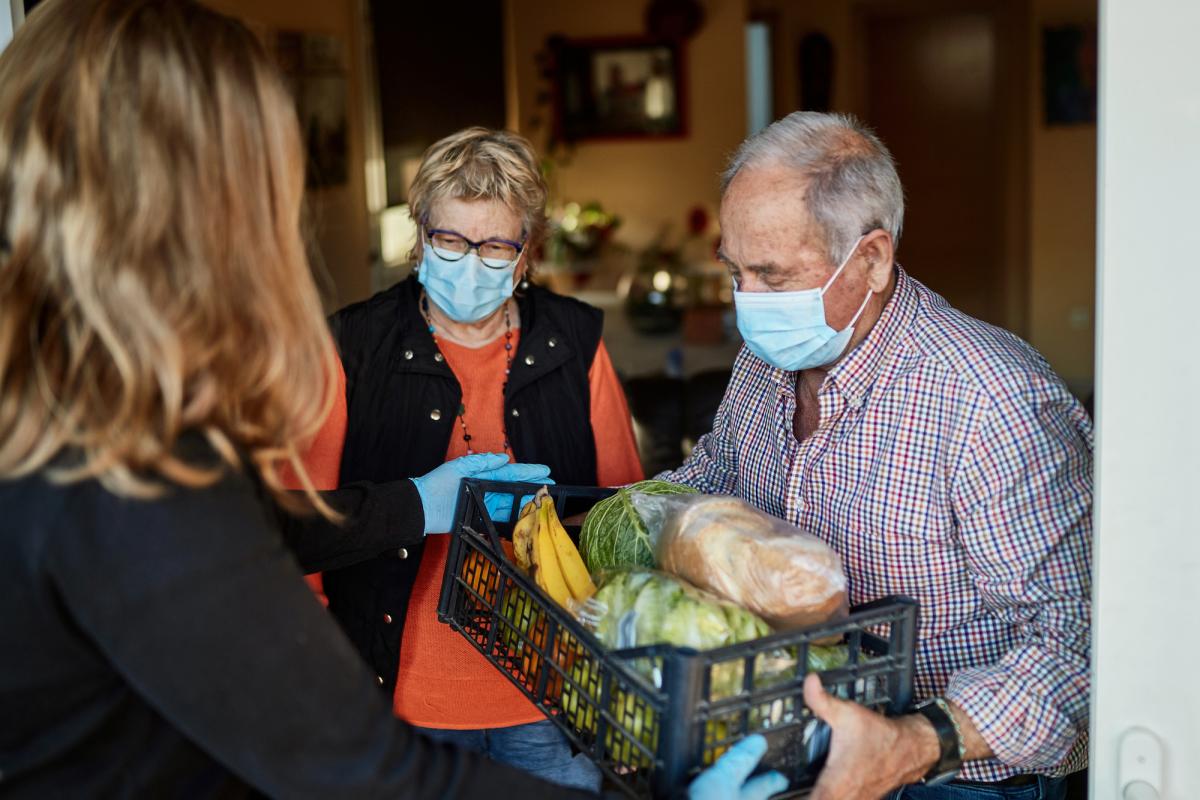



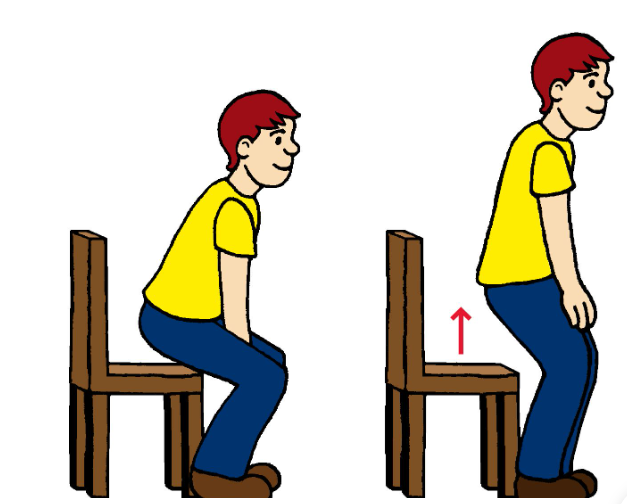
| Two-Word Verbs | Illustration | Definition & Context & Frequency |
|---|---|---|
| get down |
|
1) (+ to) Begin to pay serious attention to STH (26%) We should get down to discussing those issues as soon as possible. 2) Lower one’s body as by kneeling, sitting or lying (22.5%) Get down on your knees so you can get a better view. 3) Come down from STH; descend (car, horse, tree) (17.5%) He loves climbing trees but finds it hard to get down. |
| get in |
|
1) Go (or make STH/SB go) inside a place (car, house, room) (65.5%) The new security lock prevents thieves from getting in. 2) (+ on) Get involved in an exciting or profitable activity/opportunity (12.5%) You should get in on the show! |
| get off |
|
1) Go away from, leave (train, bus, aircraft, lift) (54%) You need to take the bus and get off at the third stop. 2) (Get off to a ... start) Begin something in a certain way (12.5%) The team has got off to a good start this season. 3) Manage to avoid serious trouble or consequences (esp. legal punishment) (12%) It’s not right that he could commit such a crime and get off so easily. |
| get on |
|
1) (+ with) Continue doing STH after stopping (51%)
We might as well get on with it if we want to finish on time. 2) Get on board some form of public transportation (train, bus, plane, elevator) (14.5%) He got on the bus to go to school. |
| get out |
|
Leave a container (vehicle, room, building) or make SB/STH leave a container (75.5%)
The prisoner have no hope of ever getting out of jail. |
| get through |
|
1) (+ to) Succeed in reaching a physical destination or stage (27%) The food supplies got through to the local population. 2) Be successfully communicated or understood (22.5%) He needed to speak slowly and clearly so his message would get through to the audience. 3) Succeed in contacting SB on the telephone (20.5%) I cannot seem to get through to the customer service department. 4) Overcome STH, esp. difficult or unpleasant (14.5%) It was their love that got me through those first difficult months. |
| get up |
|
Rise or cause to rise after lying in bed or sitting/kneeling (92%) He is getting up out of the chair. |












| Two-Word Verbs | Illustration | Definition & Context & Frequency |
|---|---|---|
| go ahead |
|
Proceed with a course of action without further hesitation (99%) Go ahead and ask me your question! |
| go around |
|
Go from one place/person to another; circulate (76%)
There is a rumour going around that she is pregnant. |
| go down |
|
1) Move down to a lower level or position (29%) After hitting the iceberg, the ship began to go down. 2) Decrease in value or amount (27%) I don’t think prices will go down. |
| go in |
|
Enter (place, area, room, building) (90%)
This restaurant looks really nice; let’s go in and have lunch. |
| go off |
|
1) Go somewhere, esp. for a particular purpose (44.5%) He decided to go off to college. 2) Emit a loud noise or sudden light as a signal or warning (22%) The security alarm is going off. |
| go on |
|
Happen, take place (64.5%)
There is a debate going on right now between the two parties. |
| go out |
|
Leave a room, building, car, or one’s home to go to a social event (56.5%) We should go out for dinner sometime. |
| go over |
|
Move towards a place or person, esp. by crossing an area (room, city, country) (63%) She went over to the window so she could watch the scene. |
| go through |
|
Experience STH difficult or unpleasant (61%)
You have to understand the tough situation she went through before judging her. |
| go up |
|
Become higher in value; increase (47.5%)
Oil prices have gone up last year. |


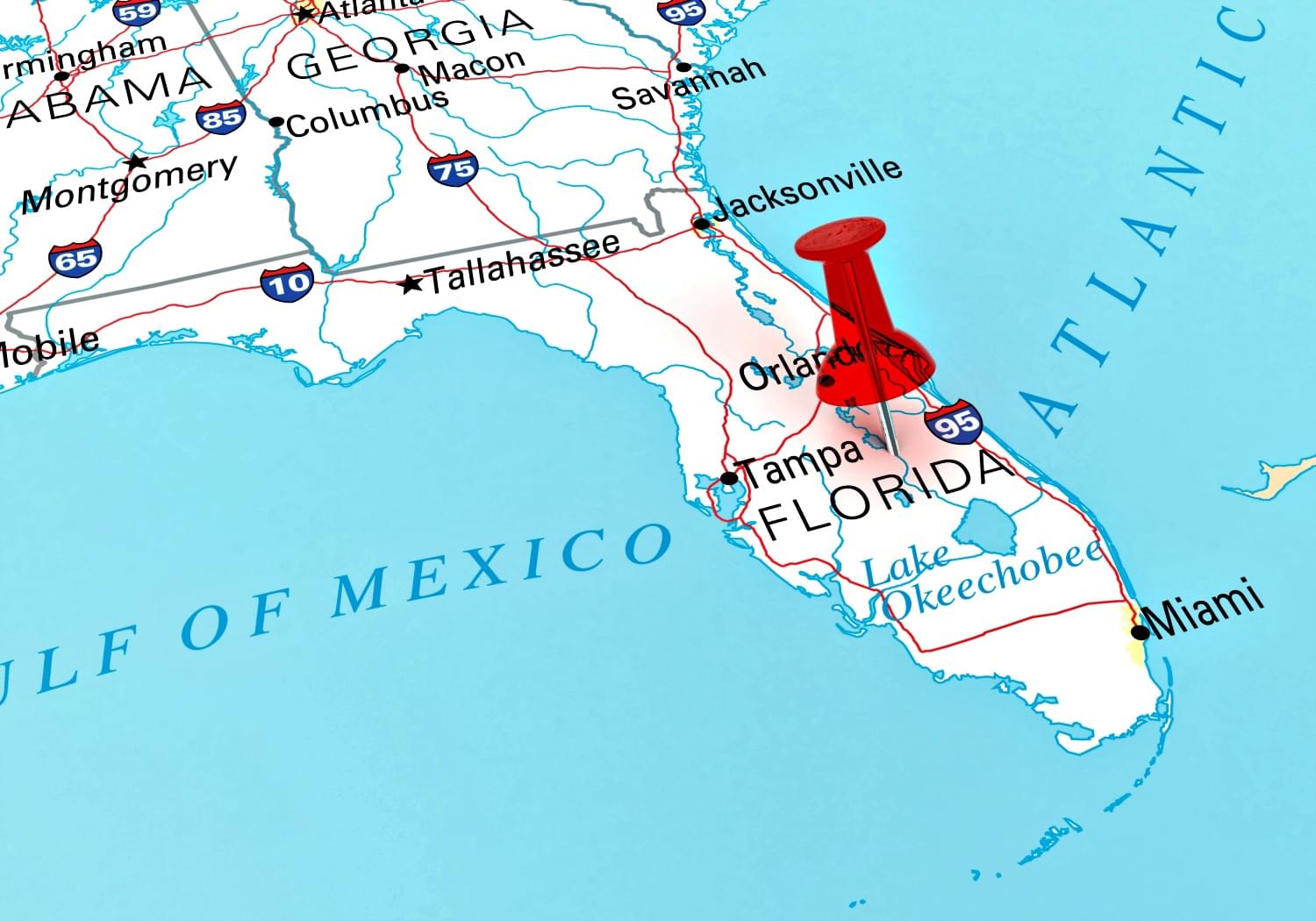
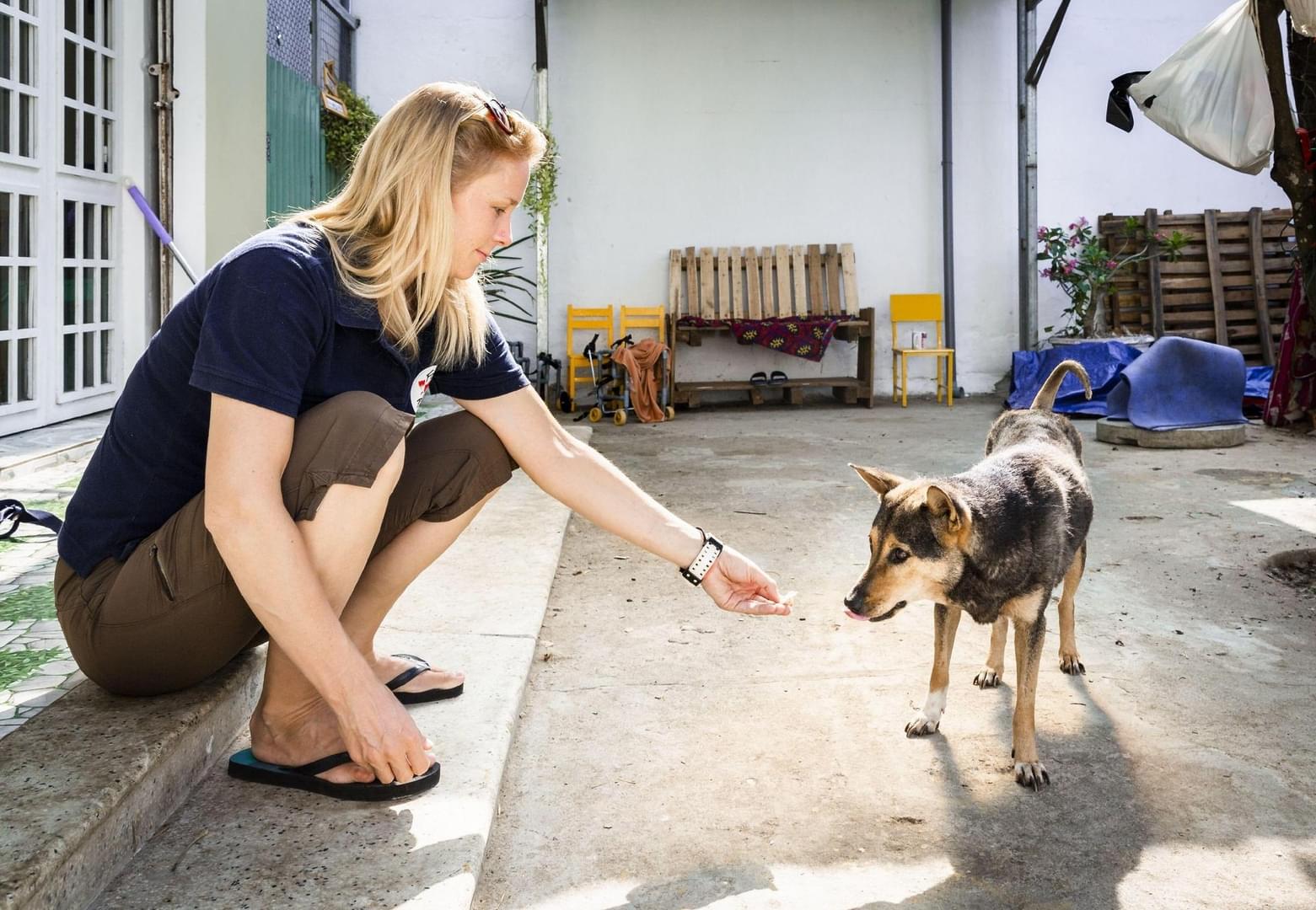



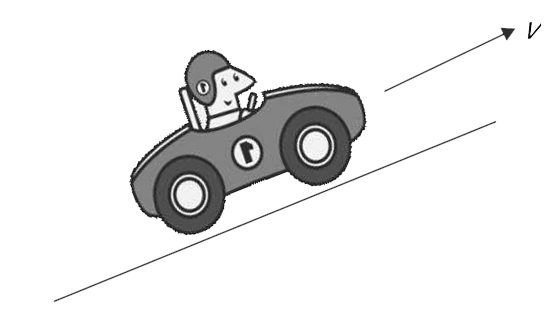




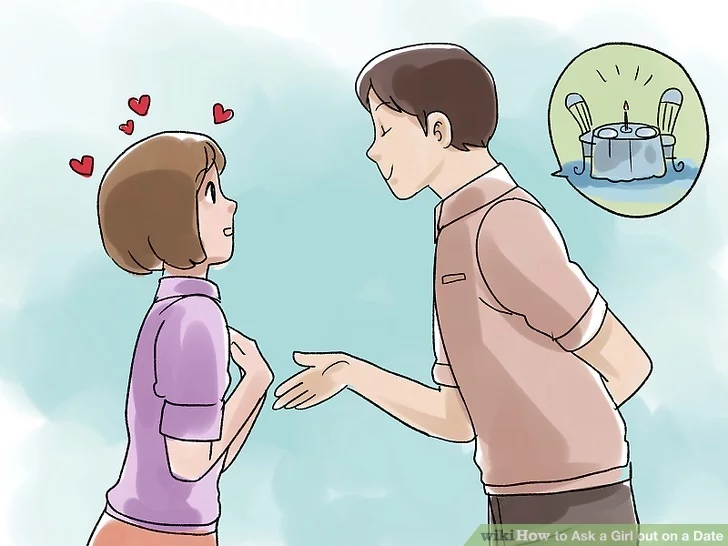




| Two-Word Verbs | Illustration | Definition & Context & Frequency |
|---|---|---|
| take down |
|
1) Remove STH that was previously put up or put in place (38.5%) After the exhibition, they took the paintings down. 2) Destroy, kill, or disable (27.5%) The terrorists tried to take down the President's plane. 3) Take SB to a place, esp. further south or at a lower level (18%) My dad decided to take us down to Florida. |
| take in |
|
1) Provide a place for SB to live or stay (24.5%) The kind lady took in the stray dog last week. 2) Fully understand or grasp the meaning of STH (17.5%) You have to explain more thoroughly; it’s too difficult to take in. 3) Deceive by behaving in a dishonest way (10%) He was very convincing, so I was easily taken in. |
| take off |
|
1) Remove STH (esp. piece of clothing or jewellery from one’s body) (41%) I took off my pajamas and put on my shirt to go to work. 2) Leave a place, especially suddenly (28.5%) They jumped into the car and took off. 3) Leave the ground and rise into the air (14%) The plane took off at 7am. |
| take on |
|
1) Undertake or handle (role, task, responsibility, problem, issue) (42%) Nobody was willing to take on such an awful job. 2) Acquire or assume as one’s own (quality, meaning, colour, shape) (41.5%) The story takes on a whole new meaning when you read it again. |
| take out |
|
1) Remove STH/SB from somewhere (container or abstract whole) (50.5%) He tore open the envelope and took out a few bills. 2) Invite to a recreational place or social event (13.5%) You should take her out to this new Chinese restaurant. |
| take over |
|
Gain control, management, or possession of STH/SB (task, job, political party, organisation) (96.5%)
After her father died, she took over the company. |
| take up |
|
1) Use a particular amount of space, time or effort (25.5%) I stacked my comic books in the corner so they would not take up too much space. 2) Discuss or deal with (issue, idea, matter) (17.5%) The colleagues are taking up the issue. 3) Start doing a particular job or activity, esp. for pleasure (10.5%) He took up gardening last year. |

